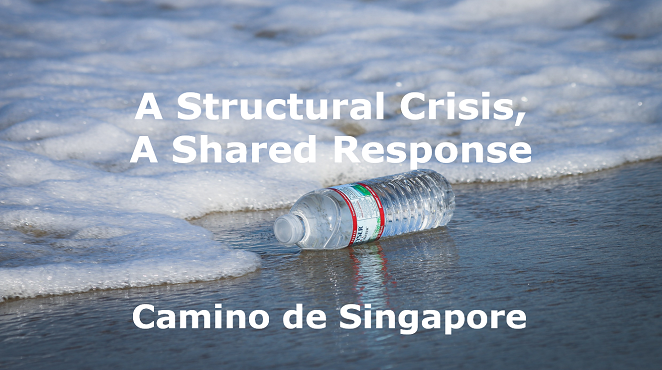No products in the cart.

Photo by https://unsplash.com/@brian_yuri
Nowadays, we hear a lot more about environmental issues in the news. Sometimes we hear about the danger of climate change. Sometimes we read about the squabbles between countries on who are responsible. At other times, we are told of the government’s plans for sustainability. Recently, I learned about the journey of three companies, supported by the government, on inventing, manufacturing and selling more environmentally friendly products.
I felt very encouraged by these stories. I thought the commitment and drive these entrepreneurs have in pursuing their goals are very inspiring. After all, they are helping us, the everyday consumers, to find alternative products that are more responsible and sustainable. I also felt that I was not alone in my effort to reduce my carbon footprint. So many of us are trying hard together to care for the earth, God’s gift for all, and avoid the disastrous effects of pollution and drastic climate change.
But one journey home was enough to dispel that naïve thought. I saw the great number of combustion engine cars on the road despite the great costs of car ownership in Singapore. I noticed the widespread availability (and use) of single-use plastic cutlery in hawker centres. The legions of shoppers coming out of supermarkets carried mostly plastic bags for their groceries. The reality is that many, many people find it challenging to change their habits. Some cannot afford it, while some just do not care.
What is happening? Are we not spoiling the divine of gift of creation? Are we not afraid of the consequences that will come back to bite us, especially those of us who are more vulnerable?
I find the teaching of St John Paul II on the “structures of sin” illuminating on this reality. He taught that the personal sins of individuals can introduce structures of sin, expand them and influence others in the community or society to sin. Thus, past practices that polluted the environment and ignored its preservation created industries and consumer habits that sustain those practices and continue to shape our behaviours today.
The implication of such sinful structures is that individual responses to the systemic crisis of environmental degradation will never be enough. How can disparate individual attempts dismantle structures shaped and sustained by entire industries for centuries? Our response must be structural in nature too.
One way to respond in a more systematic way is through government legislation and policies. This is because laws and policies can organise sectors and institutions to work on complex issues. Indeed, the three entrepreneurs were able to go further because of government funding. And furthermore, experts can say that companies need to develop sustainable practices or be left behind because regulations by various governments and international bodies will penalise unsustainable corporate behaviours.
But international bodies and governments cannot and should not act on their own. We, as residents and consumers, also need to respond to the structural sins of environmental degradation in a systemic way. We need to respond together as a community, as an institution, and as a Church, the body of Christ on earth. In order to do that, we must discern together as a synodal church how we can take the next step.
Erwin Susanto is a staff member of Caritas Singapore. He enjoys arcane discourses on Old Testament/Hebrew Bible in the context of the Ancient Near East. He also enjoys thinking about all kinds of contemporary issues and sometimes wonders if punditry is fun.
